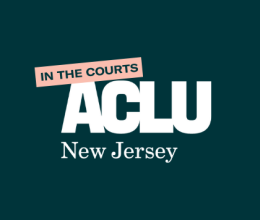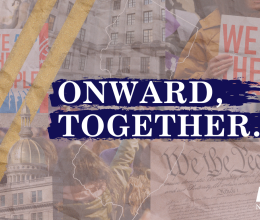
For decades, the New Jersey Supreme Court has been on the vanguard of state high courts issuing groundbreaking decisions that have protected individual liberty even when the U.S. Supreme Court has failed to.
At a time when the United States Supreme Court is stripping away long-protected individual rights, the need for a strong state Supreme Court is at its apex. Yet for the first time in history, there are only four justices of the New Jersey Supreme Court who have been nominated by the governor and confirmed by the Senate.
The Court’s reputation for excellence and independence has been forged by years of decisions that granted more rights in the most important areas of our lives: fair housing, equitable school funding, reproductive freedom and bodily autonomy, eyewitness identification, and provided for better protections against unreasonable searches and seizures.
Upcoming cases will take on similarly pivotal issues when the Court reconvenes in September:
- The impact of marijuana legalization on criminal prosecutions.
- The application of the newly enacted Compassionate Release Act.
- The balance between a defendant’s right to a fair trial and a victim’s privacy.
- Defendants’ access to police officers’ internal affairs files.
- A host of important search and seizure issues.
State courts and constitutions have historically served as the primary source of protection of individual rights. An ACLU report released this summer, “Our New Federalism,” noted the particular importance of state courts nationwide in this moment. The New Jersey Supreme Court described its relationship to the U.S. Supreme Court in these terms: While the U.S. Supreme Court “may be a polestar that guides us as we navigate the New Jersey Constitution, we bear ultimate responsibility for the safe passage of our ship.”
With one justice awaiting Senate confirmation and two more awaiting both nomination and confirmation as the term begins, we face rough seas and rocky shores.
Our commentary on the vacancies should in no way detract from the work or reputations of the four current justices on the Court, along with the three extremely capable and experienced Appellate Division judges temporarily filling the vacant seats.
Simply stated, however, the Court is most able to perform its work – and to operate free from political pressure – when it has a full bench of confirmed justices.
The elevation of Appellate Division judges sets in motion judicial a game of musical chairs, in which the Supreme Court’s vacancies become the Appellate Division’s vacancies. In our overburdened Appellate Division, 28 judges hear about 6,500 cases and 10,000 motions in a typical year, and at least two judges are retiring. Supreme Court Chief Justice Rabner acknowledged the severity: “Those reassignments will have a significant effect on the Appellate Division.”
The cumulative effect of vacancies at every level of the judiciary imposes real consequences for New Jerseyans. Landmark civil rights cases, like the ones above, play an important role in shaping the law. But the everyday cases shape our lives.
Whether a person is in court seeking compensation from an accident, contesting terms of a divorce agreement, or fighting the prospect of imprisonment, it’s a big deal for anyone involved.
While people certainly turn to the Appellate Division and Supreme Court to address important constitutional issues, they also turn to these courts if they feel they did not get a fair resolution in in any of the hundreds of trial courts dealing with civil, criminal, and family law throughout the state.
People suffer when they have to wait extraordinarily long periods for resolutions of these cases – whether they deal with money, family relationships, or even a person’s freedom.
Every day counts when you’re waiting for courts to decide whether you’ll receive financial compensation after a botched surgery, whether your children will obtain child support, or whether a conviction against you will stand. When the Appellate Division must function with a skeleton, staff, delays are certain to grow. The vacancies at the New Jersey Supreme Court, in other words, don’t only impact the sorts of cases about which newspaper articles are written. They result in slower justice for all New Jerseyans.
As the federal courts have progressively become less and less protective of individual rights and liberties, we need our state courts to stand as a bulwark against injustice. They cannot do that without a full complement of judges and justices.



